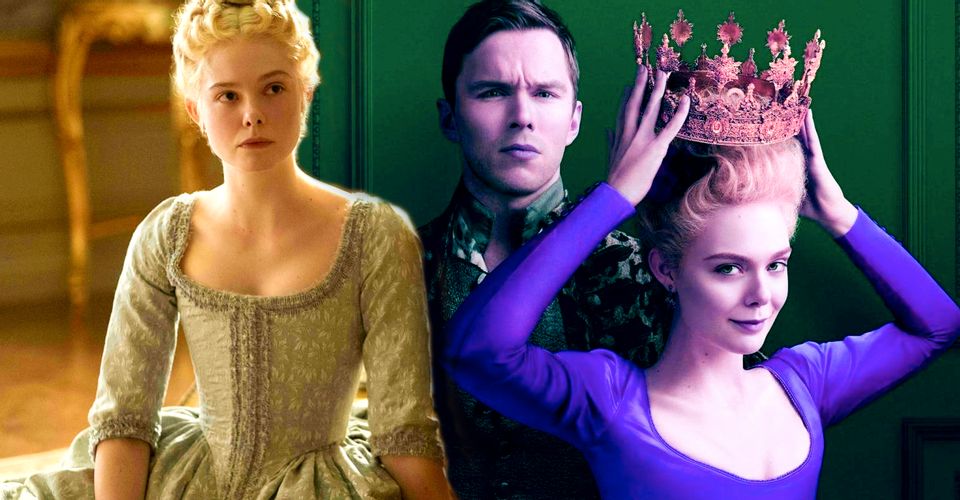Why The Great’s Historical Inaccuracies Make The Show… Great

Warning: Contains spoilers for The Great season 2.
Tony McNamara’s The Great is so full of historical inaccuracies, they’re effectively baked into the core of the show, but this is actually what makes the show so good. The Great makes only the vaguest of claims to historical accuracy with its title card including the phrase “an occasionally true story.” Although the word “occasionally” continues to do a lot of heavy lifting in The Great season 2, a frivolous attitude to historical fact is actually essential in making the show a success.
The Great season 1 sees Catherine married to Peter, the emperor of Russia, and follows her as she plans a coup against him. While Catherine did indeed instigate a coup against her husband Peter, she was also married to him for many years and gave birth to their son Paul before he became emperor, and the coup then happened six months after that. Similarly, Elizabeth was Peter’s aunt, but she was also his predecessor, and he became emperor only because she died after naming him her successor. The Great season 2 continues these inaccuracies as Catherine deals with Peter while running the country, even though in reality, he died in captivity only eight days after the initial coup.
Related: Sacha Dhawan & Phoebe Fox Interview: The Great Season 2
The fact that The Great has such a loose connection to history begs the question as to why the showrunners decided to tell this story about a historical figure in a historical setting without striving to make it historically accurate. However, by placing accuracy to one side, the writers are able to approach the show as a largely blank canvas and tell by giving The Great a cast of characters and story that will resonate with people in the 21st-century. The most notable example of this is the fact that Catherine is set up as being the first female ruler of Russia and struggles to be accepted because of it (along with the fact that she is German). The Great becomes a narrative about a progressive female leader fighting against patriarchal rule and working to depose an unstable and ineffective ruler while pushing back against the weight of fear, monied interests, and tradition. In reality, Catherine became the longest-serving female ruler of Russia but was by no means the first. Catherine the Great was actually Catherine II and was preceded by Peter’s aunt Elizabeth, who had been a formidable ruler, as well as Anne of Russia and Catherine I.

Catherine the Great pushed boundaries in a lot of ways and she also entered leadership with a lot of progressive ideas that she wanted to enact, but ultimately failed to make many of them happen (as seen with the relatively accurate depiction of her attempt to free the serfs). Even so, a strictly historical rendition of her story would not be able to provide as much commentary about the current social and political situation in places like the United States and the United Kingdom. Breaking away from any notion of historical accuracy is the best way for The Great to be able to deliver an important message to its audience while also providing a lot of farcical laughs.
The Great itself draws not directly from Russian history, but rather is based upon The Favourite writer Tony McNamara’s own play. When researching for the play version of The Great, McNamara read up on the history, but primarily drew some important names and ideas and then created his own idea that told the story he was interested in telling. This allows for Catherine being married to a Peter who is an amalgamation of her husband Peter III and the ineffectual leader Peter II, the birth of Paul when she is already empress, and countless other deviations that make for a more appropriate story to make a point to a western 21st-century audience. These alterations ultimately serve to make The Great both extremely entertaining and highly relatable.
About The Author


















